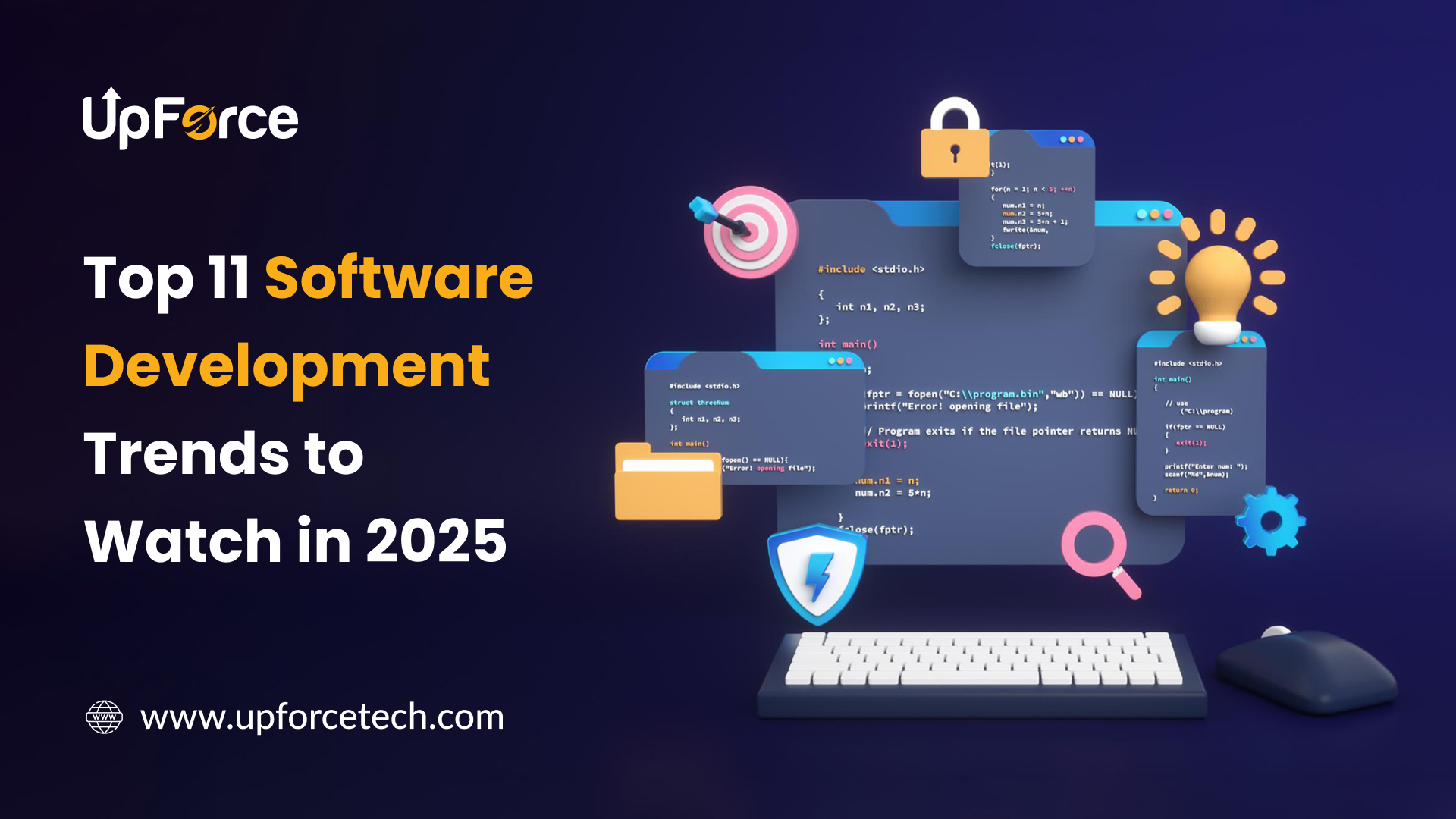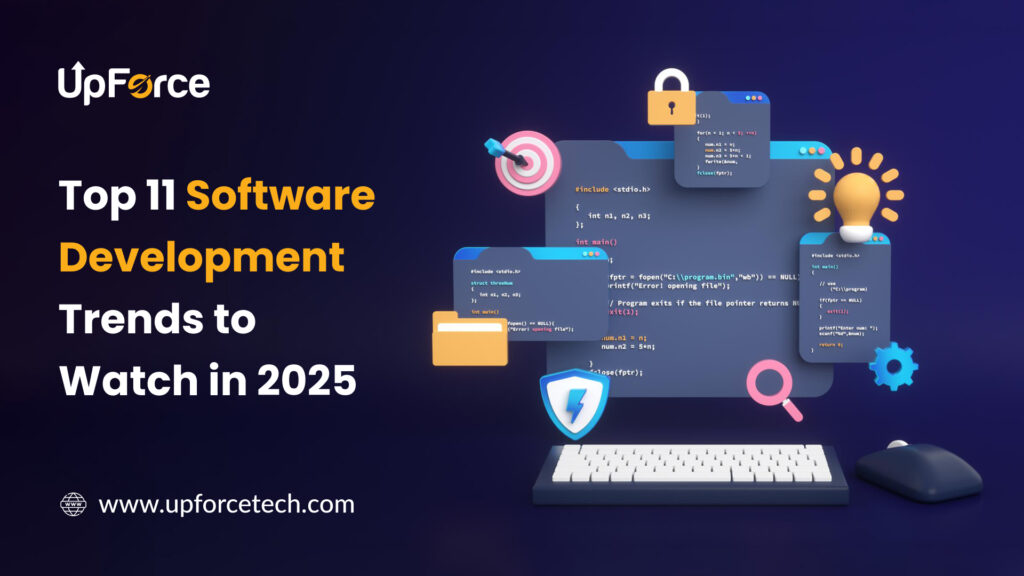Top 11 Software Development Trends in 2025
Table of Contents
Top 11 Software Development Trends to Watch in 2025
The world of software development is changing rapidly. What worked a few years ago may not be relevant anymore. Technologies like AI, blockchain, and cloud computing are reshaping the way businesses build and deploy applications. As 2025 approaches, staying updated with emerging trends is crucial for developers, businesses, and tech enthusiasts.
In this blog, we’ll explore the top 11 software development trends that will dominate in 2025. From AI-driven coding to cybersecurity advancements, let’s take a closer look at the innovations shaping the industry.

1. AI-Driven Development
Artificial Intelligence (AI) is revolutionizing the software development process. AI-powered coding assistants like GitHub Copilot, ChatGPT, and Google Gemini are helping developers write code faster and with fewer errors.
Why It Matters
- Accelerates development cycles
- Reduces human errors
- Enhances code quality and security
💡 Example: Companies like OpenAI and Google are integrating AI to optimize development workflows and increase productivity.
For more insights, check out this article on The Future of India’s IT Industry in 2025: Trends and Opportunities
2. Low-Code and No-Code Development
Low-code and no-code platforms allow businesses to build applications without extensive programming knowledge. Tools like OutSystems and Bubble are making software development more accessible.
Benefits
✔ Speeds up app development
✔ Reduces dependency on traditional developers
✔ Democratizes software creation for non-tech users
Popular platforms: OutSystems, Microsoft Power Apps, and Bubble
3. Web3 and Blockchain Technology
Web3 and blockchain are no longer just for cryptocurrencies. Companies are integrating blockchain technology into various applications, from digital identity verification to smart contracts.
Key Use Cases
- Smart contracts for automation
- Secure digital identities
- Decentralized finance (DeFi) applications
Stat: The global blockchain market is expected to grow at a CAGR of 67.3% between 2023-2030 (Source: MarketsandMarkets).
4. Cloud-Native Development & Multi-Cloud Strategies
More businesses are embracing cloud-native development to improve scalability and performance. Multi-cloud strategies, using platforms like AWS, Azure, and Google Cloud, help prevent vendor lock-in.
Why It’s Trending
☁ Microservices and containerization (Docker, Kubernetes)
☁ Improved disaster recovery and business continuity
☁ Avoids vendor lock-in with multi-cloud approaches (AWS, Azure, GCP)
Stat: 94% of enterprises already use cloud services, and multi-cloud adoption is on the rise (Source: Flexera 2024 State of Cloud Report).
5. Progressive Web Applications (PWAs)
PWAs combine the best of web and mobile apps, offering seamless performance with minimal storage requirements. Popular brands like Twitter and Pinterest have successfully implemented PWAs to improve user engagement.
Advantages of PWAs
📱 Faster loading times
📱 Offline capabilities
📱 Better performance across devices
💡 Example: Twitter, Starbucks, and Pinterest have successfully implemented PWAs for better user engagement.
More Info The Ultimate Guide to Progressive Web Apps in 2025
6. Cybersecurity-First Development
With cyberattacks increasing, secure coding practices and DevSecOps are becoming essential in software development.
Security Trends in 2025
🔒 AI-driven threat detection
🔒 Zero-trust security models
🔒 Automated compliance and risk assessment
Stat: The cost of cybercrime is projected to hit $10.5 trillion annually by 2025 (Source: Cybersecurity Ventures).
7. Internet of Things (IoT) Integration
The IoT ecosystem is expanding, with smart devices, connected cars, and industrial automation driving software innovation.
What’s Next?
- Edge computing for real-time data processing
- AI-powered IoT analytics
- More secure and scalable IoT frameworks
Stat: The global IoT market is expected to reach $1.1 trillion by 2025 (Source: IDC).
8. Quantum Computing in Software Development
Quantum computing is still in its early stages but has the potential to revolutionize problem-solving in software development.
Potential Applications
🔬 Advanced encryption & cybersecurity
🔬 Drug discovery and complex simulations
🔬 Real-time big data analysis
Big players: Google, IBM, and Microsoft are heavily investing in quantum computing research.
9. Augmented Reality (AR) and Virtual Reality (VR) in Development
AR and VR technologies are advancing beyond gaming, entering industries like healthcare, education, and e-commerce.
Use Cases
🎮 Immersive training simulations
🛍 Virtual shopping experiences
🏥 Remote medical consultations
Stat: The largest market within this market is AR Software, which will have a market volume of US$14.0bn in 2025. (Source: Statista).
10. Sustainable Software Development
As companies focus on environmental responsibility, sustainable software development is gaining traction.
Green Software Practices
🌱 Energy-efficient coding
🌱 Cloud optimization for reduced carbon footprint
🌱 Sustainable AI models
Example: Companies like Microsoft and Google are committed to carbon-neutral software development.
🔗 Learn more about about 10 Recommendations for Green Software Development
11. The Rise of DevOps 2.0
DevOps is evolving with AI-driven automation, predictive analytics, and continuous delivery improvements.
What’s New?
🔄 AI-powered CI/CD pipelines
🔄 Automated performance monitoring
🔄 GitOps and Infrastructure as Code (IaC)
Example: GitHub Copilot and AI-driven DevOps tools are making software deployment faster and more efficient.
🔗 Learn more about The Future of DevOps: Key Trends, Innovations and Best Practices in 2025
Conclusion
The software development landscape in 2025 will be shaped by AI, cybersecurity, cloud computing, and sustainability. Keeping up with these trends will help businesses and developers stay competitive in an ever-changing industry.

Are you looking to Grow your business with skilled developers? Hire a contract developer today to bring fresh ideas and expertise to your team. Learn how UpforceTech can help!
Sign up for the free Newsletter
The future of software development is not just about writing code—it’s about solving problems, building smarter systems, and staying ahead of the curve.
UpforceTech
FAQs
AI-driven development is one of the biggest trends, revolutionizing coding, debugging, and automation.
AI will enhance productivity, automate repetitive tasks, and improve software security and performance.
Yes, blockchain is evolving beyond cryptocurrencies and is widely used in security, smart contracts, and decentralized applications.
With increasing cyber threats, integrating security in every stage of development ensures data protection and compliance.
Cloud-native development focuses on building applications specifically for cloud environments, using microservices, Kubernetes, and DevOps practices.
AR/VR is transforming industries like e-commerce, healthcare, and education by creating immersive digital experiences.
DevOps 2.0 leverages AI and automation to enhance software deployment, CI/CD pipelines, and performance monitoring.
Quantum computing is still in its early stages but holds promise for complex problem-solving in security, AI, and big data.

